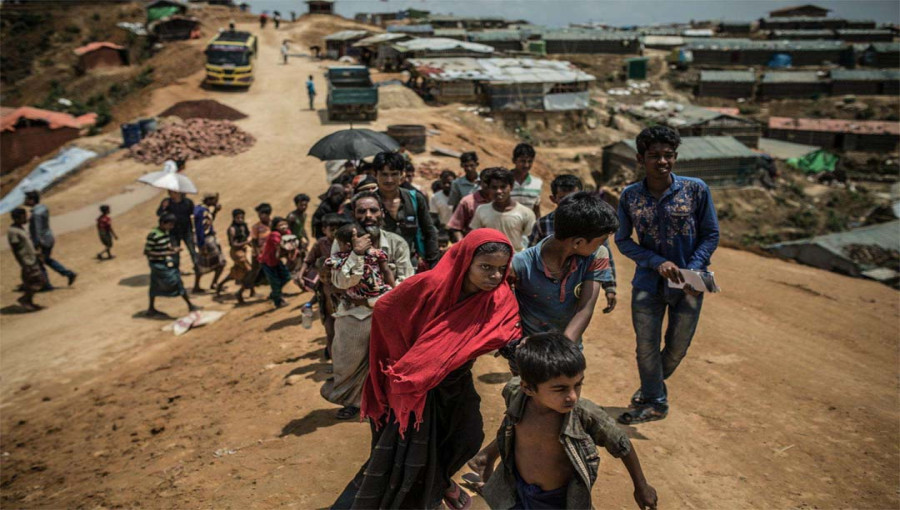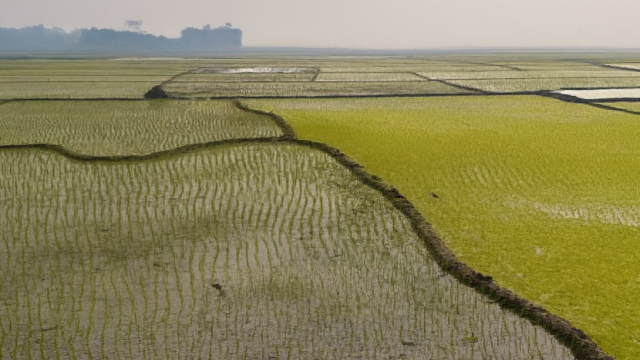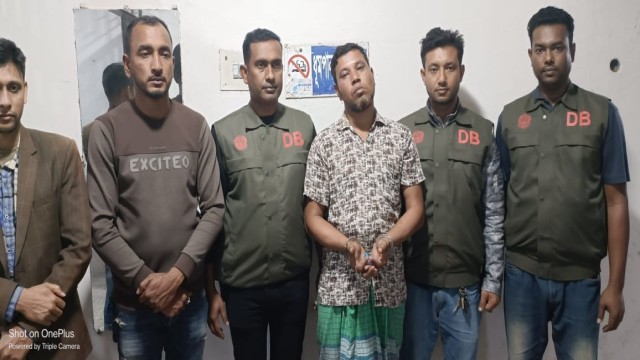Dhaka, Dec 10 (V7N) – Born in Myanmar's Rakhine State in 2005, Jannat and her family sought refuge in Bangladesh to escape violence and persecution. Now living in a Cox's Bazar refugee camp, her life became more challenging when she became pregnant at the age of 18. Despite these obstacles, she remains committed to building a better life while raising her son.
Jannat's journey mirrors the experiences of many young girls in similar situations. According to a survey conducted by Australia's La Trobe University, 53.3% of married Rohingya adolescent girls had already given birth, 35.42% were pregnant, and only 10.42% had neither experienced pregnancy nor given birth. Meanwhile, data on pregnancies among unmarried adolescents is scarce, though studies highlight that such occurrences are heavily stigmatized within the Rohingya community.
At 17, Jannat began a relationship with Anwar, a fellow refugee from the same camp. Her world turned upside down a year later when she discovered she was pregnant. Anwar left for another country, abandoning her to face the challenges of motherhood on her own. In August, she gave birth to her son and now resides with her parents as she cares for him.
Health experts warn that pregnancies during adolescence carry significant health risks for both mother and child. Dr. Fahmida Naz, assistant professor at Mugda Medical College Hospital, explained that teenage pregnancies are associated with a higher likelihood of complications such as preterm labor, obstructed deliveries, and an increased need for caesarean sections. Additionally, children born to adolescent mothers often suffer from malnutrition, and early pregnancies increase the mother’s long-term risk of developing cervical cancer.
The mental health challenges associated with adolescent pregnancies are equally concerning. Dr. Fahmida noted that young mothers often face immense difficulties in raising children while dealing with their own development, leading to emotional and psychological struggles. Jannat admitted that her mental well-being deteriorated after Anwar’s departure, describing the experience as devastating both physically and emotionally.
In the conservative Rohingya camps, pregnancies outside of marriage are particularly stigmatized. Abortions are rarely accessible, and contraceptive measures are often obtained in secrecy. The cultural taboo surrounding premarital relationships further exacerbates the challenges faced by young mothers like Jannat.
Jannat received critical support from Save the Children in Bangladesh, which helped her rebuild her life by providing legal aid, child care, and additional resources. Through their intervention, she also secured compensation from Anwar's family.
Now, Jannat envisions a future where she can empower other girls to make informed decisions. She hopes to advocate for girls’ rights and actively work against child marriage in her community. "I want girls of my age to understand their rights and make better choices," she shared, expressing optimism about creating a brighter future for herself and her son.
END/MSS/AJ/HoN































Comment: